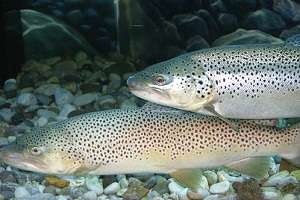Assorted South West parasites favour cleaner habitat

Biologists investigating parasites on freshwater fish in the South West believe they have discovered at least 42 native parasite species that were previously undescribed.
The Murdoch University team surveyed 29 locations between Moora and Albany and sampled 1429 fish spanning 18 different species.
They studied all native freshwater fish in each location, except for endangered species because the fish needed to be killed for the research.
Murdoch University Associate Professor Alan Lymbery, who presented the research at the WA Freshwater Fish Symposium, says two known introduced parasite species were found.
In addition to the introduced species, 42 morphologically different native parasites appeared to be different species.
He says DNA studies are needed to determine the exact number of species discovered.
Dr Lymbery says 30–40 per cent of the parasites were only found in a single species of fish, which had serious implications for the parasite's conservation risk if the fish was endangered.
"[Parasites] are probably at more risk than the fish host species because although some of the parasites we found have a direct life cycle, which means that the fish is their only host, a large number of them also had an indirect life cycle, which means they rely on other hosts as well," he says.
"Those sorts of parasites are often more vulnerable to extinction."
Dr Lymbery says the finding most fish biologists found interesting was that parasitism generally increased with improving water quality.
He says parasites, particularly those with complex life cycles, are quite sensitive indicators of environmental quality.
"Contrary to what most people think, which is that the worse the conditions are, the more disease or parasitism you have, you actually don't find that," Dr Lymbery says.
"What we found was that the better the quality of the habitat, the more fish were parasitised and the greater number of species of parasites you found."
Dr Lymbery says people think of parasites as harmful to their host but the relationship is actually more complex, both for individual fish and for the population as a whole.
"Though [parasites] certainly may be harmful in some respects to the individual host, they also may have some protective properties, for example in stimulating immune responses and providing cross-immunity to other parasites," he says.
"They do a lot of things within an ecosystem … parasites may determine the outcome of competitive interactions among hosts, they may determine predatory interactions—who eats who—and they may be very important mediators of the population cycle of the host."
Provided by Science Network WA














